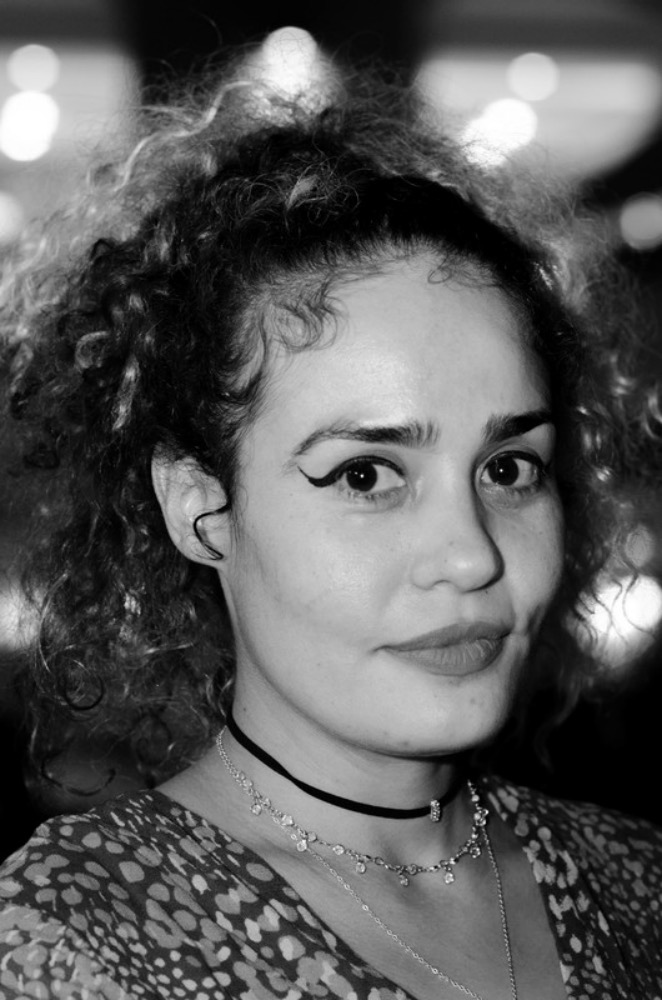
- Industry
Suzannah Mirghani: A Sudanese Filmmaker Gains International Acclaim
With screenings at 160 film festivals worldwide and 23 awards wins already, Suzannah Mirghani, the filmmaker behind the short film Al-Sit, has catapulted onto the world stage of cinema. As she steps into the spotlight, Mirghani is bringing with her a team of actors and crewmembers from her home country of Sudan and potentially heralding a new dawn for Sudanese film.
“We do not have a film industry in Sudan,” says writer-director Mirghani. “But we have really passionate, enthusiastic people.”
Born a few years after the country’s first feature-length film was made, Mirghani grew up in Sudan with her Sudanese Father and a Russian mother. At an early age, she discovered a fascination with the art form.
“For anyone who works in the film industry, obviously film is their first love,” she says. “First you love film as an audience member. Then you have a switch and you go behind the curtain, you see the magic of film happening, and you think, ‘Hey, can I actually make a film?’”
However, for 30 years, Mirghani lived in a Sudan whose government did not place arts or filmmaking in high regard. From 1989, Sudanese cinemas and production companies were closed en masse.
“I moved to Qatar. The Doha Film Institute had just opened up in 2009. I took all of their workshops: lighting, camera directing, producing, you name it.”
Mirghani worked on five short films, four of which she wrote and directed herself, often also serving as producer and editor. Then in 2019, the Sudanese Revolution saw a transition of power in her home country, which proved the start of a renaissance for Sudan’s creative voices.
“All of a sudden, art and creative expression were things that were being welcomed,” she recalls. “So we made this film in a very small honeymoon period for artists and for filmmakers.”
Able to make a film in her home country, Mirghani thought back on her experiences when she was growing up. She crafted a story about a young Sudanese girl named Nafisa who is about to enter into an arranged marriage, but questions what she actually wants to do with her life.
“There were a lot of girls that I knew of my age that were going through the situation that Nafisa is going through,” MIrghani explains. “That’s why the story really resonates with me.”
The film was cast from a pool of Sudanese talent. Older roles such as that of Nafisa’s grandmother (played by Rabeha Mohammed Mahmoud) were cast with actors who – although this may have been their first project on film – had nevertheless had a previous career in live theater. The younger actors, however, had never been afforded the opportunity to perform before, a potential obstacle for a film centering around a child character.
“When I saw Mihad Murtada in the audition I just thought ‘OK, this is the girl. This is the one that we want,’” Mirghani says of the challenging casting process for Nafisa. “We only got five candidates. Only five girls in the whole of Sudan.”
The low number of girl auditioners stood in contrast to the more than 100 young men who auditioned to play Nafisa’s arranged husband-to-be.
“This is an aspiration [for the actors],” she explains. “Men in the Arab world are generally freer to choose their own path, which says a lot about the politics of this film.”
Mirghani shares that as production began in the village of Aezzazh, in the places where she had anticipated problems, her passionate crew would jump in with solutions, encouraging her with, “Don’t stress. Don’t be so nervous about these things. We’ll get it done.”
“We needed a traditional Sudanese house of mud and various materials,” she recounts. “When we went to Aezzazh, we thought we would shoot the whole film in the village. I would shoot the cotton fields and then we would shoot in the house.”
She discovered upon arriving that the village houses were all made of brick, and were too urban to fit her vision for the set.
“Our costume designer was like ‘You don’t need to go to location scouting – come and shoot at my granddad‘s house,’” Mirghani says. “This is the beauty of making a film in Sudan.”
Al-Sit is continuing to tour through the film festival circuit, a representation of the potential for Sudanese cinema. As recent political events in Sudan leave the future of the county’s creative expression uncertain, Mirghani is hoping that she is the first of many Sudanese filmmakers in years to come.

